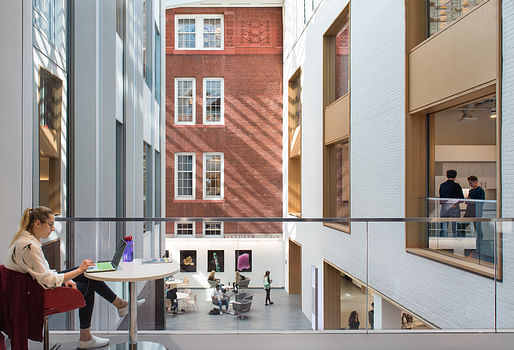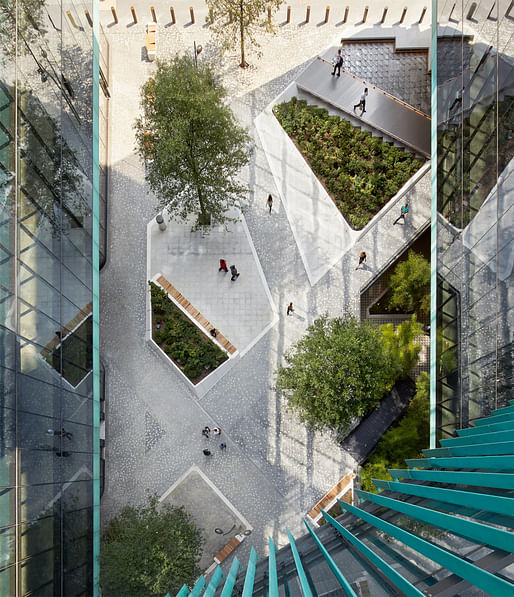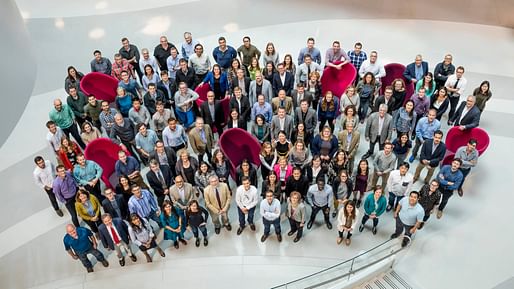

Earlier this week, we covered comments by columnist Kunle Barker in the UK’s Architects’ Journal, who warned against the trend of offsetting emissions to achieve a “zero carbon” built environment.
“Offsetting is not sustainable,” Barker wrote. “In fact, it's not even close to being sustainable, and most worrying of all, it is allowing lazy, ego-driven designs to be accepted by us all. We must find an objective and fair way to assess if (and how) a building should be constructed. This is the only way the built environment can become part of the climate solution.”
Barker’s comments demonstrate the growing value of building science, and dedicated building scientists, as a means of addressing the question of “how” a building should be constructed.

While all architects possess at least a working knowledge of building science, such as structural systems and mechanical engineering, a building scientist is tasked with merging an intricate knowledge of physics, chemistry, life sciences, engineering, and architecture, with the goal of enhancing building durability, comfort, air quality, energy efficiency, and more. Crucial for any effort to combat climate change in the built environment, a building scientist’s field of vision extends beyond the design process and seeks to optimize a building’s performance through construction, operation, maintenance, retrofitting, reuse, and demolition.

For Boston-based architecture firm Payette, building scientists form an important part of their team given the complex nature of many of their project briefs. “Our collaborative practice focuses on building types that typically possess high baseline energy intensities, including research laboratories, higher educational facilities for science, and healthcare facilities of all types,” the firm says. “Such building programs afford several challenges and opportunities that the Payette Building Science team helps overcome and realize in practice.”
As part of our ongoing Job Highlights series, we are placing a spotlight on Payette’s latest job opening for a building scientist, giving us and our community a greater insight into how building scientists fit into the wider design team. For Payette, building scientists sit at an intersection of practice and research. In addition to assisting in a project’s early conceptual studies, design options, and final proposals through specialist insights and computer modeling, building scientists at Payette also assist in research initiatives ranging from academic literature reviews to software tool development.

Payette’s job opening also offers an insight into what it takes to become a building scientist. Those with degrees in architecture, engineering, or building science can apply for the role, providing they possess a knowledge and passion for building physics, an awareness of how to measure building performance through multiple lenses, and an understanding of energy and daylight modeling software.
Dedicated building scientist roles at Payette show how architects with a heightened passion for sciences can use their passion as a means to advance their careers. However, as our community forum has previously discussed, a working knowledge of building science can help any architect or designer gain greater confidence in their ability to make informed decisions during the design process, be it to combat climate change, lower operating costs, or enhance a project’s buildability.

Payette's job advertisement in full can be found over on Archinect Jobs here. Stay tuned for future curated job highlights and be sure to keep your eyes peeled for more exciting opportunities on Archinect's industry-leading job board. Recent editions of our Job Highlights series have seen career opportunities for computational designers at Nike, a business development director at Waechter Architecture, and model makers at BIG.
1 Comment
As a building scientist with an architecture license who has been working in building science and energy efficiency for the past 15 years, I feel seen by this article :)
Block this user
Are you sure you want to block this user and hide all related comments throughout the site?
Archinect
This is your first comment on Archinect. Your comment will be visible once approved.